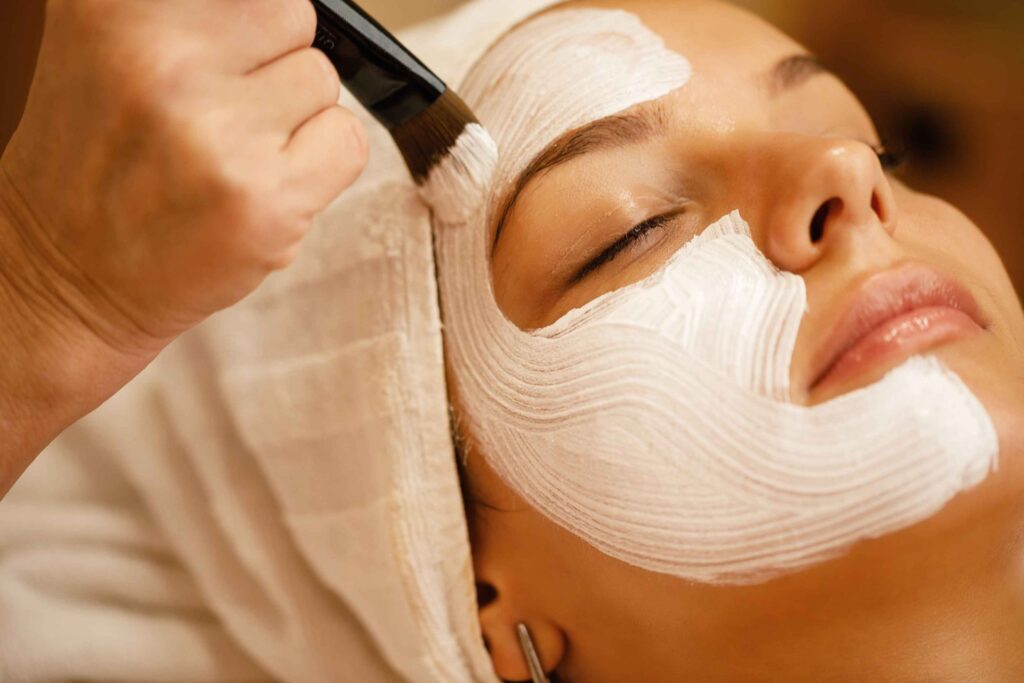
Taking care of combination skin can feel like a balancing act. You’ve got oily patches in some areas, dryness in others, and occasional breakouts sprinkled in between. That’s where deep cleansing facials come in—they’re designed to tackle these mixed skin concerns with precision. Many individuals opt for a Deep Cleansing Facial Dubai to manage their unique skin needs and restore balance and radiance. In this blog, we’ll break down how this facial treatment is performed specifically for combination skin, what benefits it brings, the full treatment process, and common questions people often ask.
Understanding Combination Skin
Combination skin is exactly what it sounds like—a combination of skin types. Most commonly, it means having:
-
An oily T-zone (forehead, nose, and chin)
-
Normal to dry cheeks
-
Occasional breakouts in both oily and dry areas
-
Flaky patches in colder months
-
Enlarged pores in oily areas
Why Deep Cleansing Is Essential for Combination Skin?
This skin type tends to trap excess oil in the T-zone while needing hydration in the cheek areas. A deep cleansing facial targets both concerns in one go:
-
Removes impurities and sebum from clogged pores
-
Balances oil production
-
Hydrates dry patches
-
Soothes irritated areas
-
Helps prevent future breakouts
Step-by-Step Deep Cleansing Facial Process for Combination Skin
Deep cleansing facials are usually performed in a series of targeted steps, each adjusted to cater to both oily and dry areas of the face. Here’s a breakdown of the treatment process:
Skin Analysis
The process starts with a thorough examination of your skin. This helps the aesthetician identify oily zones, dry patches, blackheads, and any sensitivity.
Double Cleansing
Two types of cleansers are often used:
-
Gel-based or foaming cleanser for the oily T-zone
-
Cream or milk cleanser for the drier areas
Gentle Exfoliation
A mild exfoliant removes dead skin cells, especially in the T-zone. The dry areas receive lighter exfoliation to avoid irritation.
Types of exfoliators used:
-
Enzyme exfoliants for sensitive or dry skin
-
Mild physical scrubs or salicylic acid for oilier areas
Steaming
A short session of steaming opens up the pores, making it easier to extract impurities. For combination skin, steaming is often limited to the T-zone to avoid over-drying other areas.
Manual Extraction
Blackheads and whiteheads, especially around the nose and chin, are extracted using sterile tools. This process is done very gently to avoid skin trauma.
Balancing Mask
This is the key step where different masks are used on different areas:
-
Clay or charcoal masks on oily parts to absorb excess sebum
-
Hydrating or gel masks on dry areas to replenish moisture
Toning
A gentle toner is applied to balance the skin’s pH. Alcohol-free toners with calming ingredients like rose water or chamomile are ideal.
Moisturizing
A lightweight moisturizer for the T-zone and a richer one for dry areas ensures hydration without clogging pores.
Sun Protection (Daytime Facials)
If the facial is done during the day, SPF is applied at the end to protect the skin.
Benefits of Deep Cleansing Facial for Combination Skin
| Benefit | How It Helps Combination Skin |
|---|---|
| Deep pore cleansing | Clears blackheads and congestion in oily areas |
| Oil control | Reduces shine and breakouts in T-zone |
| Hydration | Nourishes dry and flaky patches on the cheeks |
| Improved skin texture | Smooths rough areas for a more even feel |
| Balanced skin tone | Addresses redness and patchiness in dry zones |
| Enhanced product absorption | Clears pores so skincare products work more effectively |
| Reduced breakouts | Minimizes clogged pores and bacteria buildup |
| Soothing inflammation | Calms irritation from overactive oil glands or dryness |
| Boosted circulation | Increases blood flow for a healthier-looking complexion |
| Relaxation and stress relief | Promotes overall wellness and skin rejuvenation |
Aftercare Tips for Combination Skin
Following a deep cleansing facial, it’s important to maintain the balance achieved during the treatment.
-
Avoid harsh scrubs for a few days
-
Stick to lightweight moisturizers that hydrate without clogging pores
-
Use lukewarm water to cleanse your face
-
Apply sunscreen daily, even indoors
-
Hydrating serums like hyaluronic acid can be used at night
-
Exfoliate weekly, but gently and with a product suitable for combination skin
How Often Should You Get a Deep Cleansing Facial?
For combination skin, once every 4 to 6 weeks is generally recommended. However, frequency may vary depending on:
-
Seasonal skin changes
-
Breakout cycles
-
Skin sensitivity
-
Lifestyle and environmental exposure
Do Deep Cleansing Facials Help With Acne in Combination Skin?
Yes! Deep cleansing facials are great for managing mild acne, especially in the T-zone. They help:
-
Unclog pores
-
Remove bacteria
-
Control oil production
-
Calm inflammation
Can You Do Deep Cleansing Facials at Home for Combination Skin?
While at-home facials can be helpful for maintenance, professional deep cleansing offers:
-
Better tools and techniques
-
Proper skin analysis
-
Effective extractions
-
Customized treatments
That said, you can follow a modified version at home using:
-
A gentle cleanser
-
A non-abrasive exfoliant
-
A multi-masking approach
-
A balancing toner and moisturizer
FAQ’s:
Is deep cleansing facial safe for combination skin?
Yes, when treatment done correctly, it’s perfectly safe and even highly beneficial for managing combination skin concerns.
Can a deep cleansing facial cause breakouts?
Some people may experience “purging,” which is a temporary breakout due to deep pore cleansing. This usually clears up within a few days.
What ingredients should I look for in facial products for combination skin?
Look for:
-
Niacinamide for oil control
-
Hyaluronic acid for hydration
-
Salicylic acid for exfoliation
-
Green tea extract for calming
Can I combine a deep cleansing facial with other treatments?
Yes, but always space them out and consult a professional to avoid overloading your skin.
Is it normal for my skin to feel tight afterward?
A slight tightness is common, especially in the drier areas. A good moisturizer will help ease this feeling.
Final Thoughts
Managing combination skin doesn’t have to be complicated—especially when deep cleansing facials are done properly. By tailoring each step to the different zones of the face, you can enjoy clear pores, balanced oil levels, and hydrated skin all at once. Whether you’re battling blackheads, flakiness, or an uneven tone, a targeted approach like this can do wonders for your skin’s health and glow.


